IRGC Says Military Advisor Killed In Israeli Attack Near Damascus
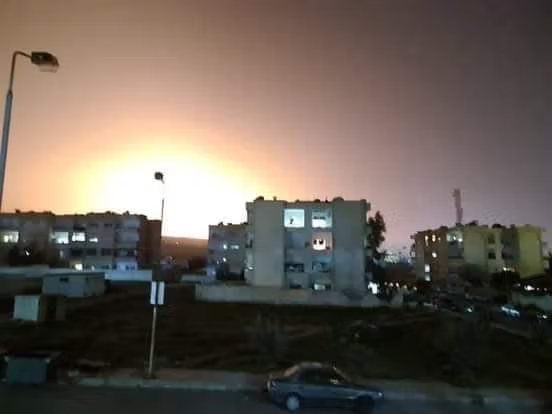
Iran's Revolutionary Guards said in a statement that one of their military advisers was killed in an Israeli attack on the Syrian capital Damascus on Friday.

Iran's Revolutionary Guards said in a statement that one of their military advisers was killed in an Israeli attack on the Syrian capital Damascus on Friday.
"The Islamic Revolutionary Guards Corps has announced the martyrdom of guardsman Milad Haydari, one of the IRGC's military advisers and officers, in the criminal attack of the Zionist regime on the outskirts of Damascus at dawn today," the media quoted an IRGC statement, which also threatened revenge.
Israel carried out an air strike near the Syrian capital early Friday the second attack near Damascus in the last two days.
Citing a military source, state media reported that Israel fired "sprays of missiles" just after midnight.
"Syrian air defenses intercepted the missiles and shot down a number of them," the source said, saying the attack caused some material damage. There are no reports about casualties from independent sources.
The source said the attack hit "a site in the Damascus countryside" but did not provide further details.
There was no immediate statement from Israel, which usually declines to comment on reports of strikes in Syria.
Israel has for years been carrying out attacks against what it has described as Iran-linked targets in Syria, where Tehran's influence has grown since it began supporting President Bashar al-Assad in the civil war that began in 2011.
Iranian-backed groups, including Lebanon's Hezbollah, and Iraqi paramilitary groups have entrenched positions around the capital and in the country's north, east and south. Israel has been regularly attacking targets in and around Damascus airport and suburbs.
There have been at least six strikes in March alone, according to a tally by the Syrian Observatory for Human Rights, a U.K.-based war monitor with sources on the ground.

Iran International has obtained a video clip showing an agent of the Islamic Republic confessing to the regime’s plans to set up a network of spies in Tanzania.
In the video, which seems like an interrogation, or a confession session, an officer of Iran’s Intelligence Ministry’s 853 unit named Hamidreza Abraheh reveals the Islamic Republic’s efforts to recruit agents for a clandestine network from Africa's Baluch minority for terrorist operations.
Abraheh, who worked under the alias Hamid Salari, said that the Islamic Republic is trying to infiltrate the African country under the cover of economic cooperation. He stated that this is the new strategy of the regime’s intelligence operations in many other countries.
He was arrested and interrogated in Dar es Salaam -- the largest city and financial hub of Tanzania -- in December 2022 and was deported to Iran. Abraheh had been granted a visa to live in Tanzania after he misled the Immigration Department and forged documents to prove that he married a Tanzanian citizen in the country.
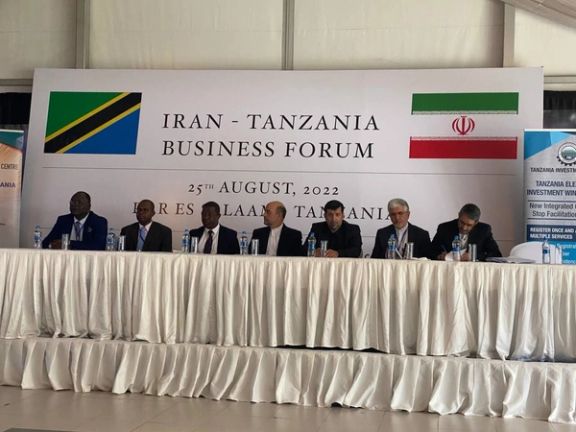
Abraheh claimed that he had been sent to the country to recruit local Baluch people and train them for terror plots and infiltrating into local governments, adding that the regime’s operations also included plots to kidnap or kill Western targets in Africa.
There is a small but historic Baluch community in East Africa, left over from when the Sultanate of Muscat ruled over Zanzibar and the Swahili Coast. According to some accounts, Tanzania -- along with Kenya and Uganda -- is home to 30,000 Baluchis, who migrated to the African country 300 years ago. The migrants were largely from Iran’s Baluchistan region, located in the Iranian plateau's far southeast.
Abraheh is originally from the city of Zabol in Iran’s Sistan-Baluchestan province and is reportedly from a Shiite Muslim family but introduced himself as a Sunni in order to better assimilate among Tanzania’s Sunni Baluch population.
"Two offices in Chabahar and Zahedan support us” in the operations in Tanzania, Abraheh says in the video, adding that he asked the offices “to find Baluch-speaking Iranian or Pakistani people who have some knowledge of Tanzania and are willing to stay here for a while."
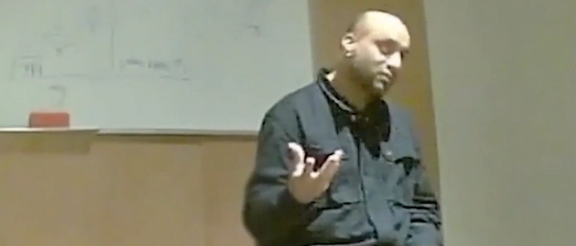
Abraheh also explains that his network was free to operate as it pleased according to five and ten-year plans and that he was tasked with recruiting, vetting, and training operatives.
In the video Abraheh elaborates on different departments of the Iranian Intelligence Ministry and their responsibilities. He says the Foreign Intelligence department is mainly focused on Israel, the US, Saudi Arabia and the Republic of Azerbaijan.
His confessions also shed light on a fierce competition between Iran's Intelligence Ministry and the IRGC's Intelligence Organization, so much so that, according to Abraheh, they express pleasure with the other one's failures.
In November 2021, ADF – a military magazine published quarterly by US Africa Command – reported the arrest of five people recruited by IRGC’s extraterritorial Quds force in Ghana, Senegal and Tanzania. Israel's Channel 12 reported at the time that the five people, who had African passports, were arrested by “local intelligence in these countries,” after Israel’s Mossad had thwarted multiple Iranian “plots” against Israeli tourists and businessmen in the three countries. The channel claimed the five had been trained in Lebanon and returned to Africa posing as religious students to identify Israeli targets for attacks, including tourists on safari in Tanzania.
Earlier in 2021, American and Israeli officials said Iran was behind a thwarted operation against the United Arab Emirates embassy in the Ethiopian capital, Addis Ababa, and that a cell of 15 had been arrested in Ethiopia and Sudan. In September 2021, Cyprus also said it had arrested an Azerbaijani national over an Iranian plot to attack Israeli businessmen there.
In January 2022, Moroccan Foreign Minister Nasser Bourita claimed that the Islamic Republic wants to infiltrate Africa and expand Shiite ideology on the continent. "Iran plans to enter West Africa and to spread the Shia doctrine in the region," he said, vowing to stop Tehran’s attempts to spread its influence on the continent.

Following a visit to capital Tehran for a football (soccer) friendly with the Iranian squad, Russian national players have spoken out about the subpar conditions of their stay in Iran.
About a week after the Russian striker Nikolay Komlichenko criticized the low quality of conditions in Tehran, two other Russian footballers also expressed dissatisfaction on Wednesday with the team's stay in the Iranian capital.
This has upset many Iranians, including well-known figures in the world of soccer.
Russia, which was banned from Euro 2024 by UEFA following the invasion of Ukraine, drew 1-1 with Iran in the international friendly in Tehran last Thursday, March 23. Russia’s Anton Miranchuk scored from the penalty spot in the 29th minute and Mehdi Taremi equalized the match from the spot in the 47th minute.

Danil Prutsev, the midfielder of the Russian national team and Spartak Moscow club, bemoaned about his trip to Iran, saying "there were internet problems, and it was difficult to communicate with our family."
Also on Wednesday, Dynamo Moscow club Striker Konstantin Tyukavin said in an interview with Sport24 that he was uncomfortable in Iran.
“To be honest, all the time that we spent there, I was somehow uncomfortable… The internet didn't work. I was using my mobile network because nothing was loading from the local Wi-Fi. In order to enter the Telegram (messaging app), you had to download a certain VPN. In fact, we spent three days without the Internet,” he said. “The weather was strange and always foggy,” he added.
Their remarks echoed similar ones by their teammate Nikolai Komlichenko, who described the standard of living in Tehran as much lower than that of Uzbekistan.
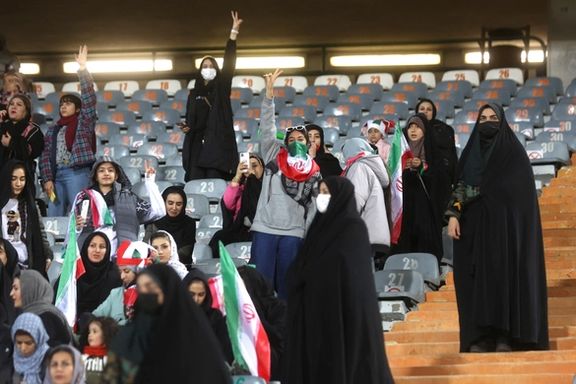
“I didn’t really like it in terms of everyday life. Everything was at a very low level, to be honest, compared to Tashkent, where we played our last match against Uzbekistan. There was a higher level of comfort there.”
Also criticizing the internet quality, he said that the signal was so bad that he could not access the internet from his hotel room. “I had to sit in the corridor in order to connect somewhere. Just like 10 years ago in Russia, if you remember, when in some places you also had to go somewhere to access the Internet.”
These statements drew many reactions from Iranians. Alireza Mansourian, the head coach of the Foulad Khuzestan club, said in a press conference Wednesday that "The Russian player was crazy! Or he was told to express such statements. As far as I know, they went from the hotel to the stadium and from there to the airport. I don't know how this rascal found out how we live in Iran!”
Mansourian also hit back saying that it was so strange how Komlichenko came to the conclusion that Iran is worse than Uzbekistan.
The Russian footballer also criticized the quality of food in Tehran, saying “We have a far better quality of food in Russia.”
For Iranians it is a real insult to say their food is bad.
“When no team plays against you, you should be honored to come to our country. 25 years ago, when we went to their country, they were killing people for [to snatch] a hundred dollars,” added Mansourian.
Following their long suspension from European and FIFA tournaments over the invasion of Ukraine, Russia has been invited to compete in the Central Asian Football Association (CAFA) Championship in June, amid speculation over a switch to the Asian confederation (AFC) as the country seeks a return to international competition. Most international sports federations have excluded athletes from Russia and its ally Belarus since the invasion of Ukraine, but some are now starting to allow them back into competition.

Azerbaijan has denounced what it called "slanderous" comments by a senior Iranian military commander, the latest sign of fractious ties between the oil-rich Caspian Sea Neighbours.
Baku made the remarks on Thursday a day after Azeri security services said they were investigating "a terror attack" after a lawmaker with strong anti-Iranian views was shot and wounded at his home.
The Azeri defense ministry said Kioumars Heydari, the head of Iran's traditional army ground forces, had stated that members of the Islamic State militant group had fought for Azerbaijan and were still based in the country.
"(This) is groundless and totally unacceptable. Generally speaking, there are no foreign elements on the territory of Azerbaijan," the ministry said in a statement. It called the reported comments "vile, defamatory and slanderous".
Relations between Azerbaijan and Iran, which has a large population of ethnic Azeris in its northwest, have been strained in recent months. In January, Azerbaijan closed its embassy in Tehran following what it called a "terrorist attack" that killed the embassy's head of security.
Baku is also unhappy about signs of improving relations between Iran and Armenia, which lost a 2020 war against Azerbaijan over the disputed territory of Nagorno-Karabakh.
The defense ministry statement complained that Tehran had clearly taken Armenia's side.
"Today it is no secret to anyone that if Armenia has two main allies in the world, France is one of them, and Iran is the other," it said.
Report By Reuters
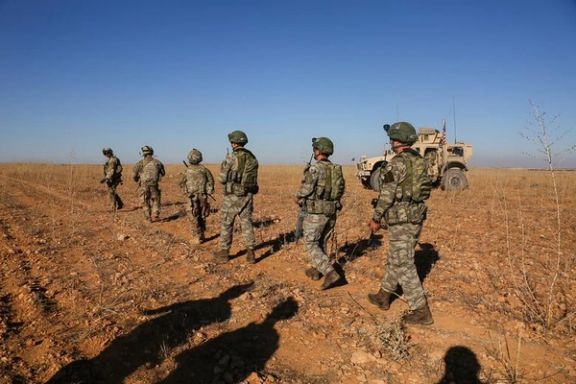
Six US troops in Syria suffered traumatic brain injuries during two attacks last week by Iran-backed militants, the Pentagon said on Thursday.
The US military said they were diagnosed during routine screenings in recent days.
The disclosure further raises the human toll among American forces from strikes and counterstrikes in Syria last week to a total of 12 US troops wounded. The attacks also killed an American contractor and injured another.
This will add more political pressure on the Biden Administration to deter Iran from supporting such attacks in the region.
In Congressional hearings last week and this week, Republican lawmakers accused the administration of being soft on Tehran, which they said is not deterred from killing and injuring Americans.
Of 83 attacks in Iraq and Syria since President Joe Biden took office, just four retaliations have taken place, according to the Pentagon.
Senator Tom Cotton, addressing Secretary of Defense Lloyd Austin in a hearing on Wednesday, said, “What kind of signal do we think this sends to Iran when they can attack us 83 times since Joe Biden has become president and we only respond four?”
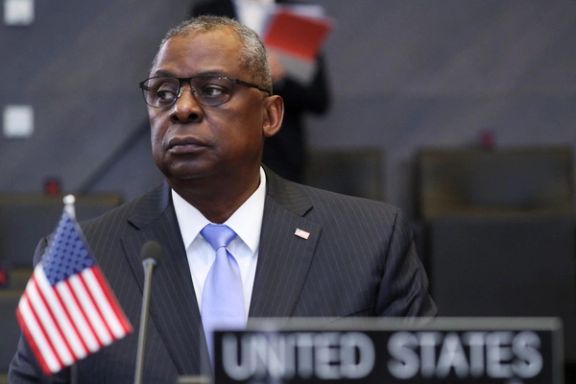
Republicans also accuse the administration of not informing Congress in a timely manner on March 23, while the Senate was debating a bill related to the issue of US forces stationed in the Middle East.
While Austin insisted Wednesday the information was relayed as soon as possible, his attempts to appease the Republicans fell on deaf ears.
“I don't believe you,” slammed Senator Cotton. “I believe that your office specifically withheld notification of this deadly strike against Americans because of the Rubio amendment on which we voted at midday directly touched on exactly this scenario, not repealing the use of force resolutions,” suggesting that the information was withheld because “the President couldn't certify that Iran was no longer attacking us in Iran and Syria”.
Pentagon spokesman Brigadier General Patrick Ryder said four service members suffered traumatic brain injuries at the US base near the Syrian city of Hasaka during a drone attack on March 23. Two others suffered injuries at mission support site Green Village during an attack on March 24.
"All personnel in the vicinity of a blast are screened for traumatic brain injury. So, these additional injuries were identified during post-attack medical screenings," Ryder told a news briefing.
The Pentagon also estimated eight militants were killed during retaliatory US air strikes against two Iran-linked facilities in Syria.
Ryder said the militants killed were not believed to be Iranian but were associated with the Islamic Revolutionary Guard Corps (IRGC).
That toll is lower than the one reported by a Syrian war monitoring group, which estimated that the air strikes and exchanges of fire killed three Syrian troops, 11 Syrian fighters in pro-government militias and five non-Syrian fighters who were aligned with the government.
President Joe Biden on Friday warned Iran that the United States would act forcefully to protect Americans.
The White House said on Monday that the incidents would not trigger a US pullback from its nearly eight-year-old deployment to Syria, where it is battling the remnants of Islamic State.
This is not the first time US troops in the region have been diagnosed with brain injuries from attacks.
In 2020, more than 100 US troops were diagnosed with traumatic brain injuries stemming from a missile attack by Iran against a base in Iraq.
Syria's foreign ministry has condemned last week's US strikes, saying Washington had lied about what was targeted and pledging on Sunday to "end the American occupation" of its territory.
Iran's foreign ministry accused US forces of “terrorist attacks” and targeting "civilian sites."
With reporting by Reuters
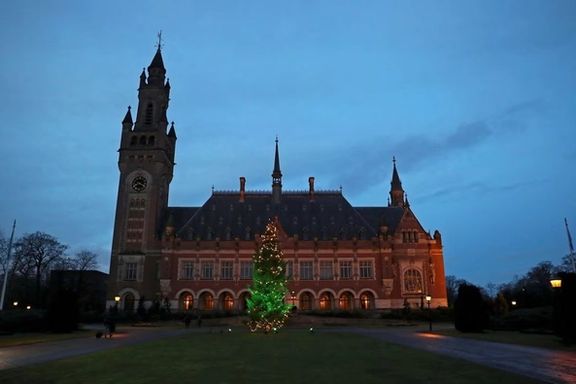
The International Court of Justice (ICE) on Thursday rejected Tehran’s legal bid to free up $1.75 billion of the Islamic Republic’s assets frozen by US court rulings.
In a 10-5 majority decision, judges said the UN International Court of Justice did not have jurisdiction to rule on the Iranian claim linked to the assets of the Central Bank of Iran (CBI) that were blocked to be paid in compensation to victims of a 1983 bombing in Lebanon and other attacks linked to the Islamic Republic. The CBI’s frozen assets of $1.75 billion in bonds, plus accumulated interest, are held in a Citibank account in New York.
The court found that the US move to seize assets of Iran and Iranians in the United States breached a treaty between the countries, signed in 1955, about 24 years before the establishment of the Islamic Republic. However, it ruled that it did not have jurisdiction based on the 1955 Treaty of Amity in the case of CBI’s funds because it is not a commercial enterprise, and thus not protected by the treaty.
The ICE judges accepted American lawyers’ contentions that the frozen central bank assets were state holdings not covered by the treaty, but ruled that assets belonging to non-government, commercial entities should be protected.

Iran argues the asset freeze was a breach of the 1955 Treaty of Amity, which promised friendship and cooperation between the two countries, even though the US and Iran have had no diplomatic relations since militant students took over the US Embassy in Tehran in 1979. Moreover, Washington terminated the Treaty of Amity in 2018 in response to an order by the International Court of Justice in a separate case to lift some sanctions against the Islamic Republic. Nonetheless, the ICE ruled that the treaty was in place at the time of the freezing of the assets of Iranian commercial companies and entities.
In its 67-page judgment on Thursday, the court also ruled that Washington had illegally allowed courts to freeze assets of some Iranian companies and ordered Washington to pay compensation, the amount of which should be negotiated between the countries. If they fail to reach a number, they will have to return to the Hague-based court for a ruling.
"The court has concluded the United States violated its obligations under (...) the treaty of amity," presiding judge Krill Georgian said. He added that Iran was entitled to compensation and the parties had 24 months to agree on a figure and if that did not work, the court would start new proceedings to determine the amount to be paid.
The court’s judgments are final and legally binding but the United Nations' top court has no means of enforcing them.
At hearings in September 2022, the Islamic Republic called the asset freeze an attempt to destabilize the Islamic Republic and a violation of international law. Tehran took its claim to the world court in 2016 after the US Supreme Court ruled that money belonging to Iran’s central bank could be used as compensation for the 241 American troops who died in the 1983 bombing. After the bombing of the US military base in Lebanon, a second blast nearby killed 58 French soldiers. Tehran has denied involvement, but a US District Court judge found Tehran responsible in 2003. The judge’s ruling said Iran’s ambassador to Syria at the time called “a member of the Iranian Revolutionary Guard – IRGC -- and instructed him to instigate the Marine barracks bombing.”
Acting Legal Adviser Rich Vise of the US State Department said in a written statement that the ruling rejected the "vast majority of Iran's case," notably where it concerned the assets of the central bank, adding that "This is a major victory for the United States and victims of Iran’s state-sponsored terrorism."
Iran's foreign ministry also reacted to the Thursday ruling, hailing the decision as "highlighting the legitimacy" of its positions and "expressing the wrongful behavior of the United States".
Tehran’s talks with world powers to revive the 2015 nuclear deal – officially known as the Joint Comprehensive Plan of Action (JCPOA) -- was going on with some vague prospects of success but ultimately collapsed after Russia invaded Ukraine. Russia was an active player in the talks from April 2021 to February 2022, when it invaded Ukraine. The negotiations in Vienna ended in early March. Some Iranian observers suggest that the West is not likely to respond to Iran's renewed calls for nuclear talks unless Tehran stops supplying weapons to Moscow in its war.